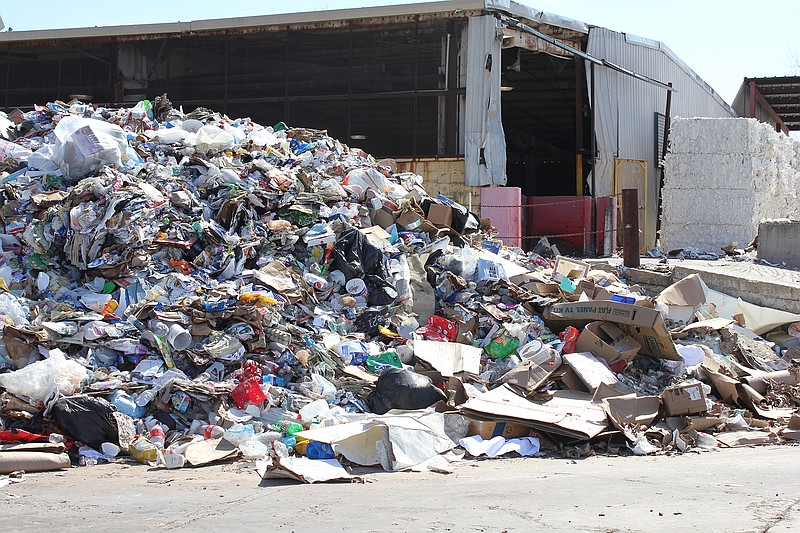About a third of Texarkana, Texas, residents put the wrong things in their recycling bins, and Waste Management is warning that as a result, curbside recycling service could be discontinued.
The company is taking steps to correct the problem, starting with asking City Hall to help spread word about what can and cannot be recycled.
On Monday, Waste Management began refusing to empty recycling bins if they are contaminated with any unrecyclable materials. Instead, workers will tag contaminated bins and leave them full.
"It will be the customer's responsibility to remove the contaminants out of the recycle cart themselves before we will pick it up," Waste Management District Manager Jarrod Miller said. Crews will empty corrected bins on the next regular pickup day.
China, the world's highest-volume importer of recyclable materials, recently enacted narrow restrictions on the recyclables it will accept. Twenty-four types of materials are banned from import. Contamination for any material imported into the country is limited to only 0.5 percent.
China returns overcontaminated shipments to exporters such as Waste Management at their expense, and both Chinese and domestic processors pay less for contaminated materials. The result is pressure at every step in the process to minimize contamination.
"We have been informed by the recycle facility that if we do not clean up our single-stream recycle, they will no longer take it," Miller said.
Residents can help by putting only acceptable materials in their recycling bins and making sure those materials are "perfectly clean," Waste Management Communications Manager Greta Calvery said in a previous Gazette report.
Items acceptable in recycling bins include plastic bottles and plastics numbered one through seven; paper, such as newspaper, magazines and junk mail; dry cardboard with no food residue; and aluminum, iron, steel and tin cans rinsed clean.
Items not acceptable include clothing and blankets; yard waste and wood; food; polystyrene foam (Styrofoam); glass, porcelain or ceramics; water hose; any liquids; electronics; unnumbered plastics; hazardous materials or medical waste; and plastic bags and film.
More information is available at the website for Waste Management's recycling education campaign, recycleoftenrecycleright.com.
On Twitter: @RealKarlRichter

